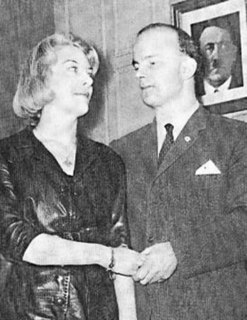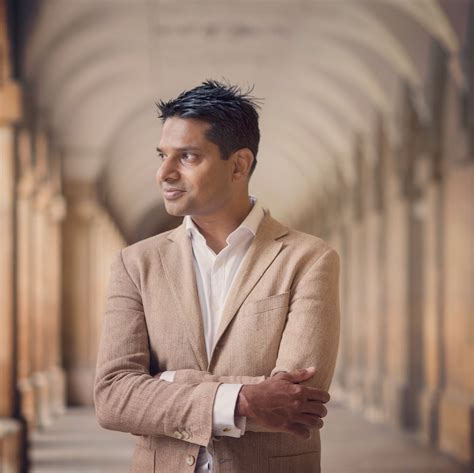A Quote by Laozi
heaven is eternal, earth everlasting. they endure this way because they do not live for themselves. in the same way, the wise person puts himself last, and thereby finds himself first, holds himself outside, and thereby remains at the center, abandons himself, and is thereby fulfilled.
Related Quotes
When each citizen submits himself to the authority of law he does not thereby decrease his independence or freedom, but rather increases it. By recognizing that he is a part of a larger body which is banded together for a common purpose, he becomes more than an individual, he rises to a new dignity of citizenship. Instead of finding himself restricted and confined by rendering obedience to public law, he finds himself protected and defended and in the exercise of increased and increasing rights.
If He opens a door for you, thereby making Himself known, pay no heed if your do not measure up to this. For, in truth, He has not opened if for you but out of a desire to make Himself known to you. Do you not know that He is the one who presented the knowledge of Himself to you, whereas you are the one who presented Him with deeds? What a difference between what He brings to you and what you present to Him!
How does one chip off the marble that doesn't belong? ... That comes about through five things: humility, reverence, inspiration, deep purpose, and joy. No great man has ever wise-cracked his way to greatness. Until one learns to lose one's self he cannot find himself. No one can multiply himself by himself. He must first divide himself and give himself to the service of all, thus placing himself within all others through acts of thoughtfulness and service.
Consider the idea of a God who is essentially sadness and longing, yearning to reveal himself, to know himself through a being who knows him, thereby depending on that being who is still himself - yet who in this sense creates Him. Here we have a vision which has never been professed outside of a few errant knights of mysticism. To profess this essential bipolarity of the divine essence is not to confuse creator and created, creature and creation. It is to experience the irrevocable solidarity between the Fravarti and its Soul, in the battle they undertake for each other`s sake.
Life, as a part, is interwoven with the life of the whole, not only present, but past and future, for while men come and go the folk lives on, continuous, eternal, providing its members perform their duty to it. Thus, in identifying himself with his folk man prolongs himself through the multiplicity of his ancestors and his descendants, and thereby attains immortality.
An artist is he who has his center within himself. He who lacks this must choose a particular leader and mediator outside of himself, not forever, however, but only at first. For man cannot exist without a living center, and if he does not have it within himself, he may seek it only in a human being. Only a human being and his center can stimulate and awaken that of another.
According to the Buddha, the failure to recognize the illusion of the self is the source of all ignorance and unhappiness. It is only by renouncing the self, that is, by dropping his ego defences and committing metaphorical suicide, that a person can open up to different modes of being and relating and thereby transform himself into a pure essence of humanity. In so doing, he becomes free to recast himself as a much more joyful and productive person, and attains the only species of transcendence and immortality that is open to man.






































